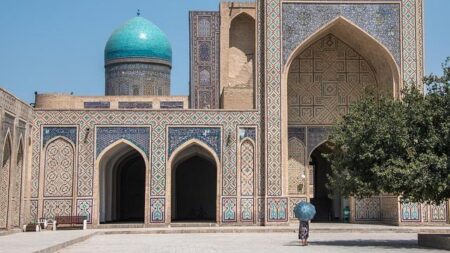Julius Nyerere’s Revolutionary Blueprint: Crafting Tanzania’s Army for African Liberation
In the turbulent era following Africa’s wave of decolonization, Julius Nyerere stood out as a transformative leader who not only spearheaded Tanzania’s independence but also redefined the role of its military in the broader liberation movement. As Tanzania’s inaugural president, Nyerere recognized that sovereignty was more than political autonomy-it required a disciplined, ideologically driven armed force capable of defending national freedoms and promoting Pan-African unity. This article explores how Nyerere meticulously built an army designed to confront colonial remnants and inspire neighboring countries engaged in their own struggles for freedom. By analyzing his strategic vision, ideological commitments, and pragmatic decisions, we reveal how he laid the foundation for a military institution that embodied both defense readiness and continental solidarity.
Strategic Foundations Behind Nyerere’s Military Reforms
Nyerere understood early on that forging a strong military was essential not only to protect Tanzania but also to cultivate national cohesion. His approach combined modern military professionalism with revolutionary ideals aimed at uniting diverse ethnic groups under one national identity. Key pillars of his strategy included:
- Elevating Military Professionalism: He invested heavily in comprehensive training programs where soldiers mastered contemporary combat tactics alongside political education rooted in liberation ideology.
- Bridging Civil-Military Relations: By encouraging troops to actively engage in community development projects-such as building schools or improving local infrastructure-Nyerere fostered mutual trust between civilians and soldiers.
- Embedding Pan-African Solidarity: The Tanzanian army was envisioned as more than a defensive force; it became an instrument supporting liberation movements across Southern Africa by sharing resources and intelligence.
Navigating Cold War geopolitics skillfully, Nyerere secured vital support from global allies sympathetic to anti-colonial causes:
| Ally Nation | Aid Provided | Contribution to Tanzanian Defense Goals |
|---|---|---|
| China | Munitions supply, tactical training programs, infrastructure development assistance | Aided modernization while maintaining non-aligned foreign policy stance. |
| Soviet Union | Military advisors embedded within forces; delivery of advanced weaponry systems | Drove technological upgrades enhancing operational capacity. |
| Eastern African Partners (Kenya & Uganda) | Collaborative drills; intelligence exchange networks; | Cemented regional defense cooperation against lingering colonial threats. |
Leveraging Local Resources: Building Self-Reliance Within Tanzania’s Armed Forces
Central to Nyerere’s vision was cultivating an autonomous defense apparatus grounded in indigenous capabilities rather than dependency on external powers. This self-sufficiency ethos resonated deeply amid post-independence economic challenges faced by many African nations.
His initiatives included:
- Nurturing Domestic Arms Production: Encouraging local manufacturing ventures enabled production of basic weaponry and supplies within Tanzanian borders-a move that stimulated nascent industries while reducing import reliance.
- Culturally Tailored Training Regimens: Military instruction incorporated traditional knowledge systems alongside modern techniques ensuring relevance and accessibility for recruits from rural backgrounds.
- Tapping Community Support Networks:The armed forces were integrated into everyday life through mobilizing village committees for logistical aid such as food provision or medical assistance during deployments.
These efforts not only enhanced operational resilience but also instilled pride among citizens who saw their contributions reflected directly in national security achievements. Today, this model remains influential across Africa where localized resource utilization is increasingly viewed as critical amid shifting geopolitical landscapes.
Nyerere’s Holistic Defense Philosophy: Empowerment Beyond Combat Readiness
For Julius Nyerere, building an effective army transcended battlefield prowess-it involved nurturing well-rounded individuals committed to nation-building ideals. His philosophy emphasized social empowerment through education and unity over mere militarization.
Key elements included:
- Civic Education Integration:The curriculum extended beyond weapons handling to include literacy programs and civic responsibility training preparing soldiers as active citizens post-service.
- < strong >Military Participation In Social Development:< / strong > Soldiers contributed directly by assisting public health campaigns or constructing essential infrastructure like roads or water wells during peacetime deployments.< / li >
- < strong >Fostering National Cohesion:< / strong > Recruitment policies promoted ethnic diversity reflecting Tanzania’s demographic mosaic which helped diminish tribal divisions historically exploited by colonial rulers.< / li >
This comprehensive approach transformed the armed forces into agents of social progress rather than instruments solely focused on conflict-a legacy still studied today among scholars examining sustainable security sector reforms across emerging democracies.
Conclusion: The Enduring Legacy of Nyerere’s Military Vision for African Liberation Â
Julius Nyerere crafted more than just a fighting force; he engineered a symbol embodying Tanzanian nationalism intertwined with Pan-African aspirations. His foresight ensured that the country possessed not only defensive strength but also moral authority rooted in principles like self-reliance, inclusivity, and solidarity with oppressed peoples continent-wide.
By embedding these values into every facet-from training doctrines influenced by socialist ideals prevalent during his presidency (1964-1985) to leveraging international partnerships without compromising sovereignty-Nyerere set standards still relevant amid today’s complex security challenges facing Africa.
As current conflicts underscore-the ongoing fight against insurgencies such as those seen recently around Lake Tanganyika-the foundational structures laid down under his leadership continue empowering Tanzanian forces capable of adapting dynamically while upholding their founding ethos.
Ultimately,Nyrerre’s blueprint serves as both historical testamentand practical guidepost illustrating how visionary leadership can transform military institutions into catalysts driving broader societal transformation throughout Africa.







